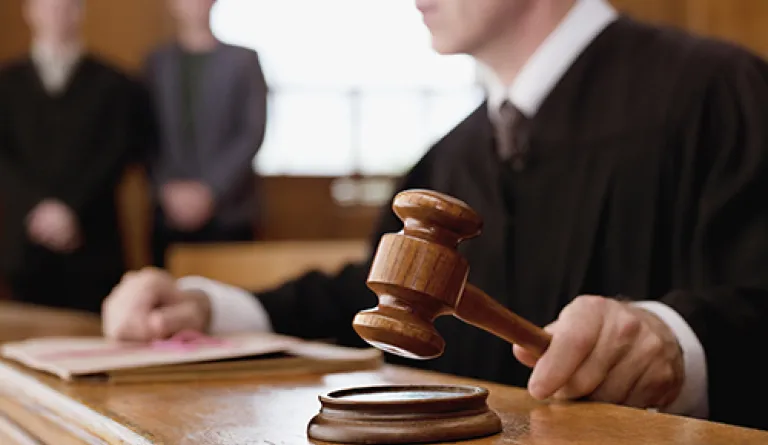What Is the Rule of Law, and Why Should We Be Concerned when it's Under Attack?

The legal controversies surrounding many of the current administration's policy initiatives have included calls to impeach judges who have ruled against the government, and even threats to the physical safety of judges and their families. Defenders of the judiciary frequently have characterized these events as attacks on the rule of law. But what exactly is the rule of law, and why should we be concerned when it's under attack?
The rule of law has four basic elements.
- Decisions are based on evidence and established legal principles.
- The parties have a meaningful opportunity to be heard.
- Decision-makers (judges) have ethical integrity and are subject to effective oversight to prevent misconduct.
- While parties who are unhappy with the outcome of a case have every right to criticize the result and seek review by higher courts, court orders ultimately are followed.
The fundamental importance of the rule of law perhaps is best illustrated by imagining the alternative. In some parts of the world, decisions are based on what the government wants rather than provable facts and applicable law. Decisions are made in secret (or important evidence is withheld) without parties having the right to know the evidence against them or to present their case. Judges are pressured to decide cases in particular ways, or even bribed to do so. Powerful interests feel free to ignore decisions that they don't like. For almost two and a half centuries, the United States has been a place where the rule of law matters.
This is not to say that our system is above criticism. Evidence-based decision-making can be affected by the limitations of the decision-makers' life experience and perceptions. The opportunity to be heard can be affected by limitations on resources, including money and time. Judges' adherence to ethical standards can be affected by poor judicial selection processes or weak enforcement mechanisms. And rulings that aren't fully explained may not be fully accepted.
But when fair criticism turns into a broader attack on the rule of law itself, it's important that the difference be called out. We should be very concerned about claims that judicial decisions should be based on loyalty to a political viewpoint rather than evidence and law; that the government has the right to deprive people of life, liberty, or property without an opportunity to be heard; that it's acceptable to make personal threats against judges who have made decisions one doesn't like; and that some court orders simply can be disregarded.
